SMART members across North America are living in extraordinary times. And nowhere are these extraordinary times, with all their challenges and opportunities, better exemplified than in Faribault, Minnesota, a town of approximately 25,000 people and the home of SMART Local 480.
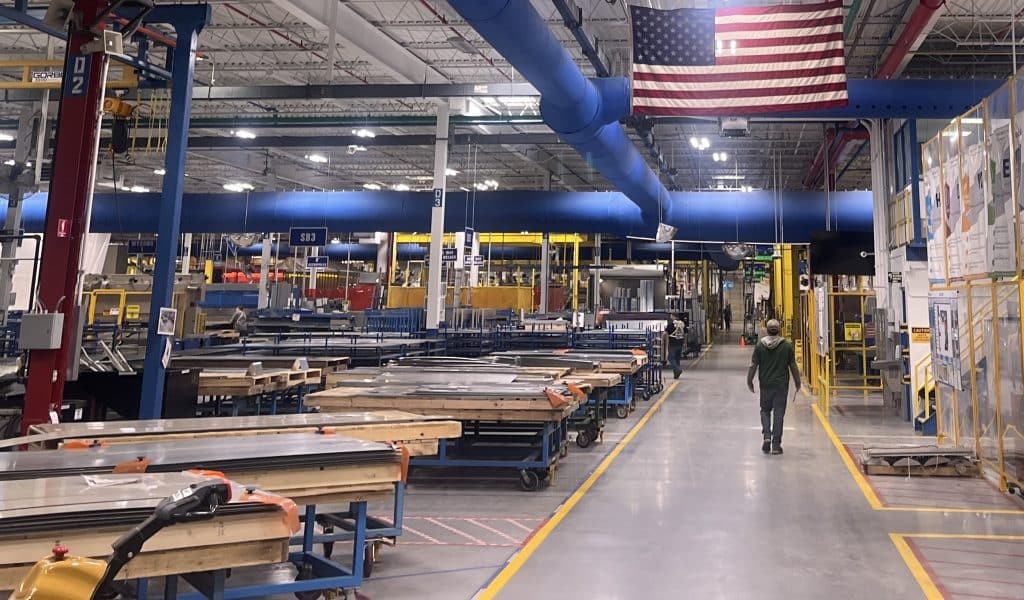
In Faribault and nearby Owatonna, money from laws passed by the Biden administration has spurred a surge in demand at commercial HVAC manufacturer Daikin Applied, leading to an equivalent increase in workforce needs. Local 480, which represents production members, has responded by putting the pedal to the metal: organizing, recruiting and concocting innovative solutions to make sure they have the workers they need — both today, and for the long term.
“We’re growing way faster than anybody would’ve ever expected,” said Local 480 Business Manager Donavan Vierling.
Meeting the challenge
Approximately three years ago, Local 480 had 849 members across its signatory shops: Daikin Applied in Faribault and Owatonna, and Crown Cork and Seal in Faribault. Today, the local has around 1,250 members — and it’s expected to need 250 more at Daikin by the end of 2024.
“Our Daikin shops have really started to grow, especially with the money out there for COVID relief, from the CHIPS and Science Act, the infrastructure bill. The company has seen huge growth, and they’ve put a lot of money in their plants, technology, things like that,” said Local 480 Subsidized Organizer Billy Dyrdahl, a third-generation sheet metal worker.
With the need for workers showing no signs of stopping, Dyrdahl and Local 480 have pulled out all the organizing stops: hand billing during shift changes at nonunion production shops, visiting workers at manufacturing plants that are closing, flyering at gas stations and much more. They’ve also worked with the company on retention efforts, ensuring new hires know all the benefits provided by Daikin and by their union. Dyrdahl and the local even went so far as to contract with Strive Staffing, an agency that provides gateways to union jobs like those at the Minnesota Vikings and Twins stadiums, to reach potential new hires in the Twin Cities area.
The effort to meet Daikin’s demand has been a union-wide one. SMART Local 10, based out of the Twin Cities metro, has collaborated with Local 480 on various canvassing and flyering operations, including to fill workforce needs at Daikin. Plus, by working with SMART International Organizer Dan Kortte, Local 10 Business Manager Matt Fairbanks, Organizer Paul Martin and others, Local 480 recently helped Daikin complete a time-sensitive welding job by bringing on several Local 10 sheet metal workers from greater Minneapolis/St. Paul.
“The company originally figured it was going to be about a three-month project,” Vierling recalled. “These guys showed their skill and basically were done in half the time [Daikin] expected.”
The collaboration between Local 10 and Local 480 shows the industry-spanning solidarity of our union. It’s also helped provide new career pathways for SMART members across the state: Dyrdahl said Local 480 has worked with Local 10 to welcome building trades sheet metal workers who were seeking to work in a production environment.
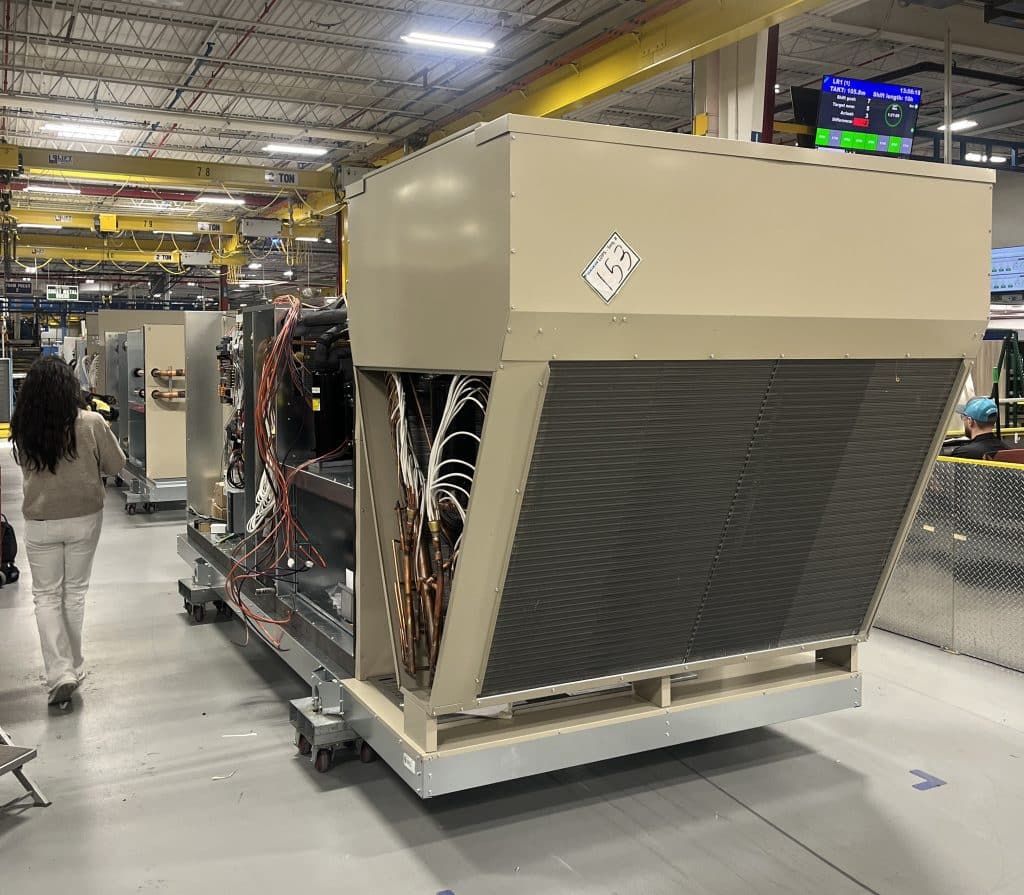
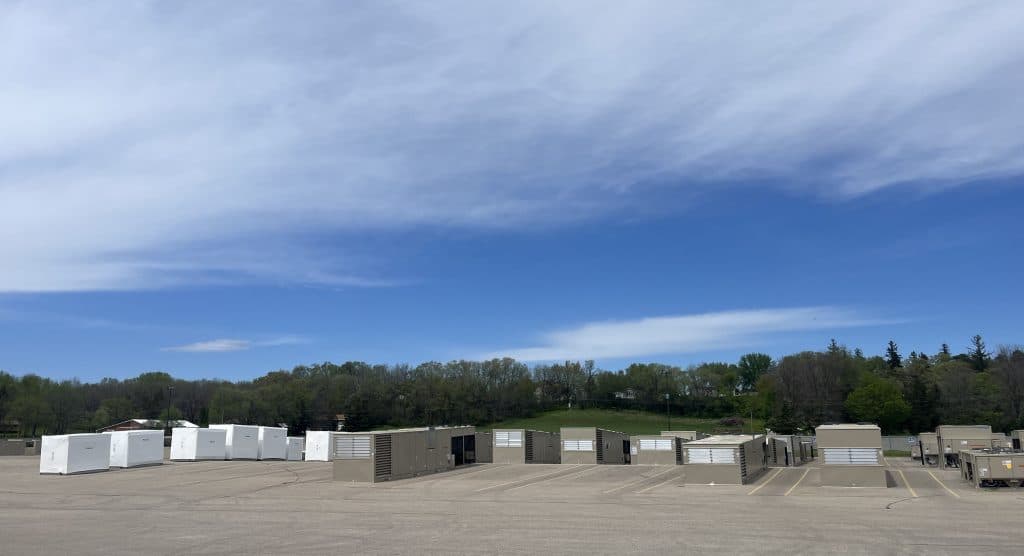
Welcoming all members
Bringing new workers into Daikin is one thing; ensuring that the latest Local 480 members stay there is something else entirely.
“How do you onboard people and not turn everything into a complete revolving door? … Our challenge, as a union, is to make [new] people feel welcome,” Vierling explained.
For years, the demographics of Local 480 and the Daikin workforce were largely white and male. In recent decades, though, Faribault and Owatonna have welcomed a growing number of Latino/ Hispanic people and immigrants from Somalia, and the sheet metal industry at large has made strides to bring more women into the trade. Local 480 has acted accordingly – and in the true spirit of unionism — to make sure those workers have a better life.
“I’m seeing it right now: Daikin is growing, diversity-wise,” said Mustafa Jama, a Somali immigrant and 21-year SMART member. “They’re hiring all kinds of people, it doesn’t matter who you are. My department barely had female workers [when I started] … now, all through shifts, you will see at least 50% women, which is a good thing.”
This growth can take many forms, Jama, Vierling and Dyrdahl explained. One example: The Islam-practicing Somali American workers at Daikin originally ran into obstacles with management around break times and scheduling that accommodated their religious practice, which includes daily prayers and fasting during the holy month of Ramadan. Local 480 stood up for their newest members the same way they would for workers of any faith — negotiating with the company to devise break time flexibility and shift-scheduling that gives Muslim members the ability to break their fast at sundown during Ramadan, and including contract provisions that allow those same members to use time off to observe their religion.
Vierling and Dyrdahl are also supporting Recording Secretary Stephanie Bottke’s nascent efforts to form a Local 480 Women’s Committee — a development that will help women across all signatory shops gain a stronger support network (and assist as the local recruits more women moving forward). Bottke, a member of the SMART Recruitment and Retention Council, was inspired to take action by conversations with fellow SMART sisters across the union and by her own experience in the trade. Her early years were somewhat isolated, she said, particularly when she was pregnant and a working mother.
“I personally started on the shop floor at 19 years old. I raised a family on the shop floor,” Bottke recalled. “There weren’t resources available, or at least none that I knew of … about what was available to me as I was raising a family. The basic needs of nursing, time off work, those types of things.”
She hopes the Local 480 Women’s Committee will help provide her union sisters with mentors to turn to — and strengthen overall solidarity at the local by helping with recruiting and retention.
“Women come into our buildings not knowing that there are other women that are going to be supportive, and through a women’s committee we can definitely establish that support system,” Bottke said. “And I think through the women’s committee and establishing those early connections, it will help our general membership see that we can be stronger when we’re connected as a whole.”
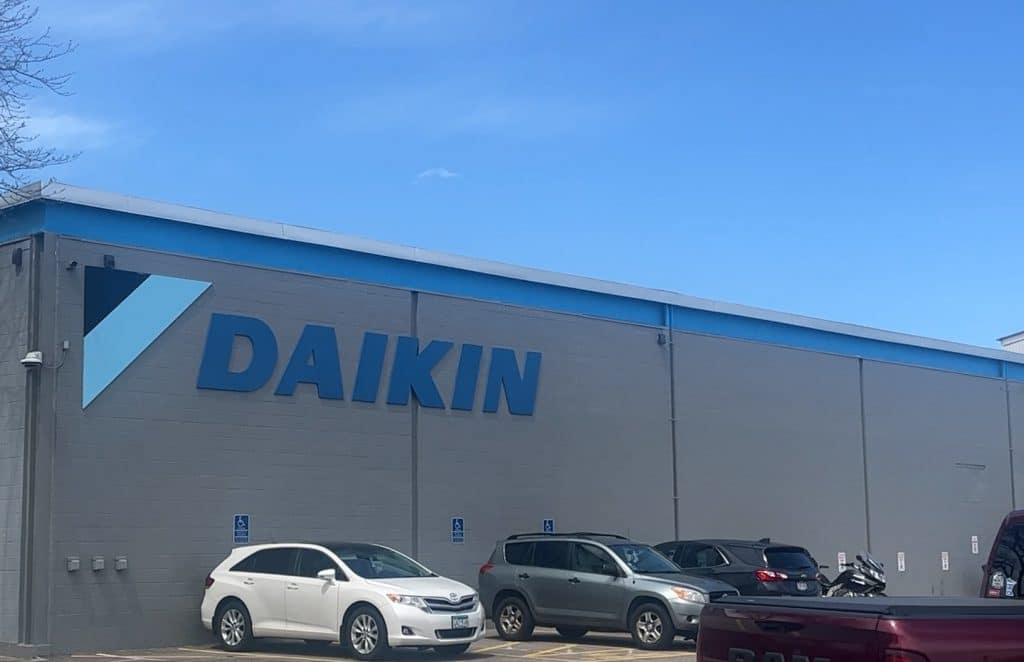
Such changes are not without challenges. Jama, now a team lead, faced unacceptable discrimination when he first started as a coil assembler back in 2000 — and similar incidents have been reported more recently. In the same vein, some of Bottke’s first attempts at spreading awareness about the newly formed women’s committee were met with confusion at best, derision at worst.
But support from local union representatives and leaders has helped both Jama and Bottke continue on their trailblazing paths — and Dyrdahl, Vierling, Jama and Bottke all say that overcoming those difficulties and pursuing inclusive growth can only help Local 480 win stronger protections for all members moving forward.
“There’s a change, but that change came with sacrifice. People spoke up, and there were policy changes,” Jama emphasized.
“Having our local grow helps in all types of ways — including financially,” Dyrdahl added. “We can spend on lawyers when we need them for certain things. We are able to spend money to support our negotiating committee to really build up our contracts.”
Moving forward, Daikin continues to grow and require more workers. Local 480 is organizing accordingly, spreading the word to anyone who will listen: The union life is a better one for you and your family.
“Sometimes, union’s a bad word until people come and see what our benefit packages are and our wages,” Dyrdahl said. “Once we get them in the local, they’re pretty happy with it.”
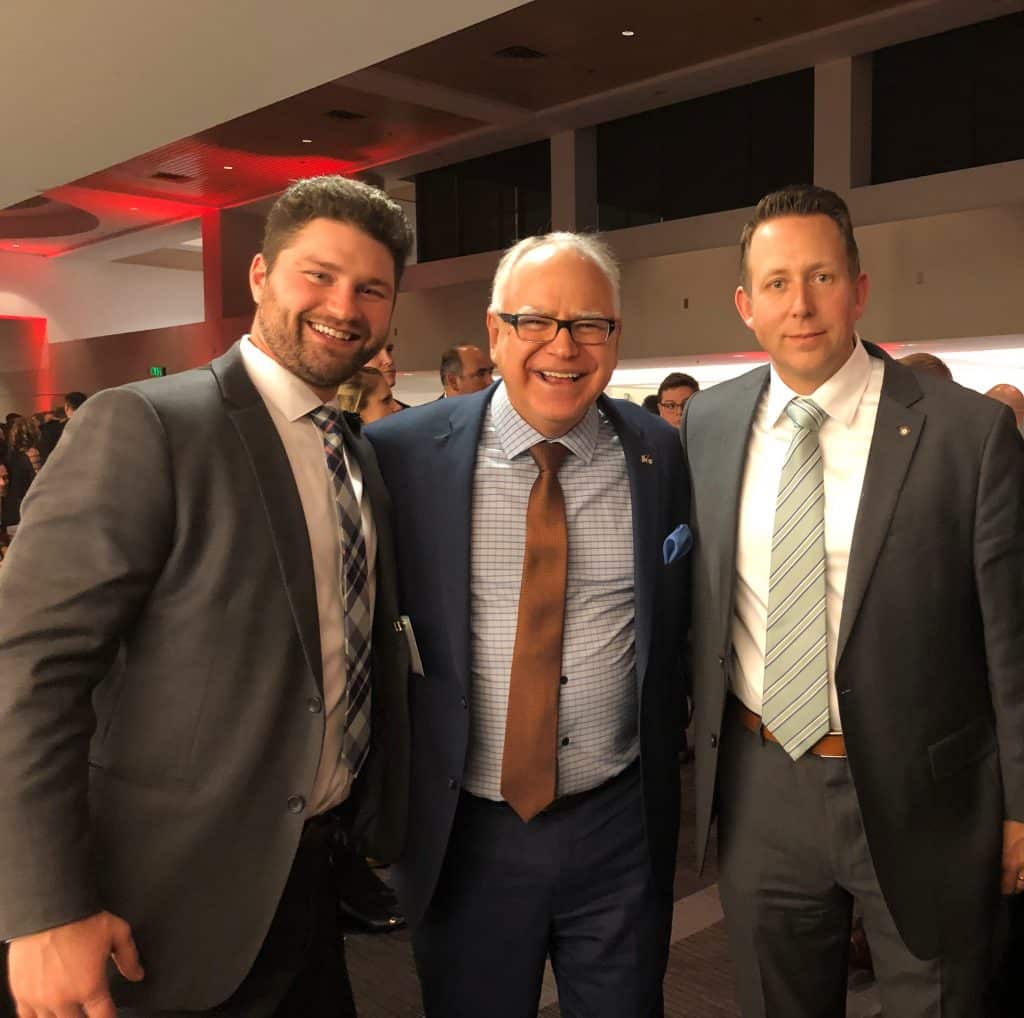
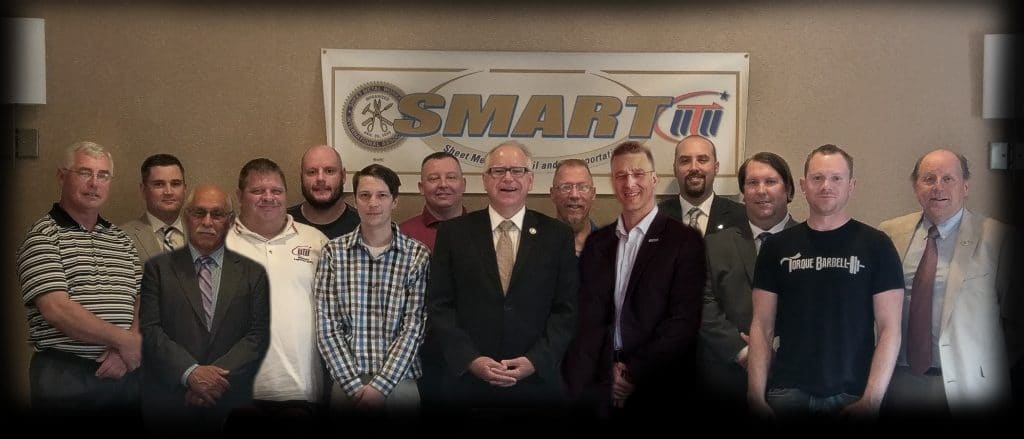
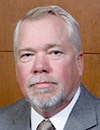

 A bill that would require two-person crews aboard Amtrak and most freight trains operating in Minnesota passed out of two Senate committees last week. The safety measure is a top legislative priority of theUnited Transportation Union, which represents about 70,000 workers in North America.
A bill that would require two-person crews aboard Amtrak and most freight trains operating in Minnesota passed out of two Senate committees last week. The safety measure is a top legislative priority of theUnited Transportation Union, which represents about 70,000 workers in North America.